Nursing Menu
Indigenous Health Nursing Research
Thompson Rivers University campuses are on the traditional lands of the Tk'emlúps te Secwépemc (Kamloops campus) and the T’exelc (Williams Lake campus) within Secwépemc'ulucw, the traditional and unceded territory of the Secwépemc Nation. The region TRU serves also extends into the territories of the St’át’imc, Nlaka’pamux, Tŝilhqot'in, Nuxalk, and Dakelh, and Métis and Inuit Peoples living within these territories. The term Indigenous refers First Nations, Métis, and Inuit People, being mindful of the cultural diversity and distinction between cultures.
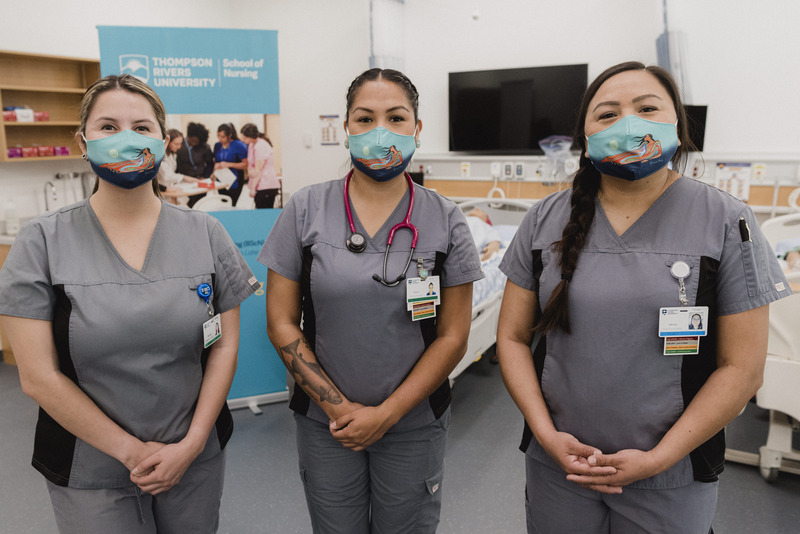
Research Focus/Aim
Advancing Indigenous Wellness by Reconciling Parallel Pathways in Indigenous Health Nursing: Innovating Wise Practices for Education, Standards, Partnerships, and Research.
Indigenous Health Nursing Research (IHNR) aim is to support Nurse-lead research to enhance access to culturally safe education, and ensure culturally secure health care environments, through distinction-based approaches. All research is based in a knowledge co-creation process through collaboration with Indigenous and non-Indigenous local leaders and health care providers guided by Indigenous cultural protocols and principles to develop actions that will address the unique health needs of Indigenous Peoples.
The greatest test of your professionalism will be your ability to apply your knowledge in a practical way, to put yourselves at the service of those communities and individuals whose need is greatest. (Jean Goodwill, RN, LLD)
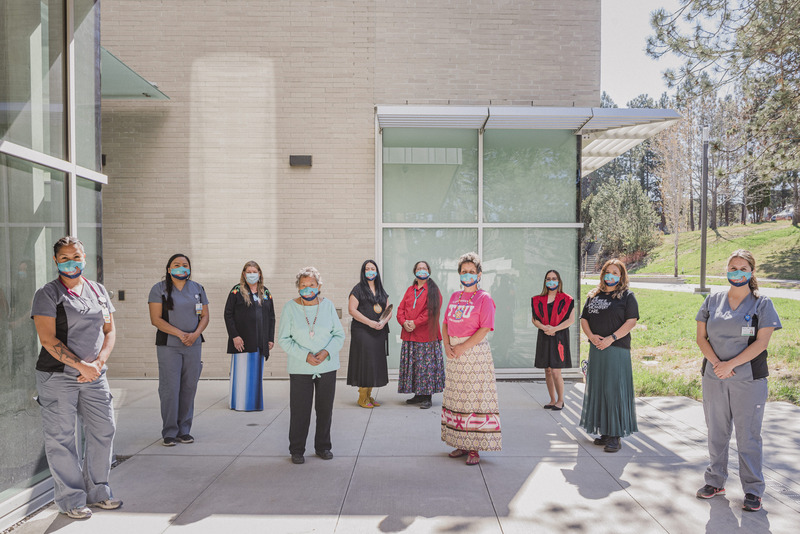
Weyt-k! Welcome to TRU.
On behalf of Thompson Rivers University (TRU), School of Nursing (SON) we are pleased to invite you to attend our inaugural Indigenous Health Nursing Research Symposium. Virtual series beginning October 19, 2020.
Nursing faculty have been longstanding champions for Indigenous Health and Indigenous nursing. In recognition of the World Health Organization (WHO) Campaign 2020 as Year of the Nurse and Midwife we wish to celebrate the contribution of nursing to the world’s health and are excited to work together with local leaders to develop research aimed at Advancing Indigenous Wellness by Reconciling Parallel Pathways in Indigenous Health Nursing: Innovating Wise Practices for Education, Standards, Partnerships, and Research. This research program is based in a knowledge co-creation process through collaboration with Indigenous and non-Indigenous health providers guided by cultural governance protocols and principles established by an Advisory Council.
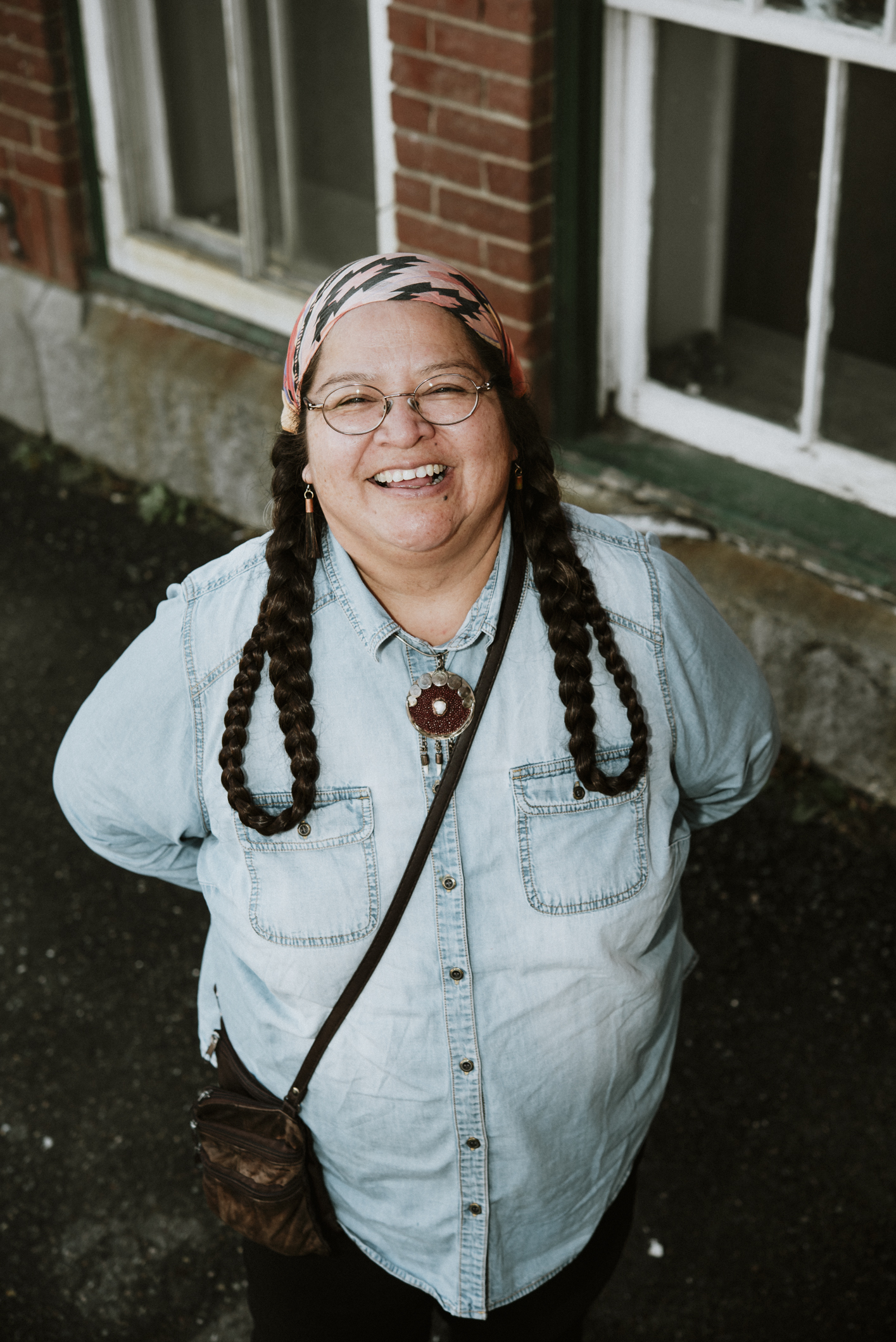
We believe that Indigenous Health Nursing (IHN) is an integral component of Indigenous healthcare. Indigenous Health Nursing promotes nursing practices that respect traditional knowledge is foundational for healing amongst First Nations, Inuit, and Métis peoples.
We will maintain relational accountability to our knowledge holders while ensuring mutual reciprocity is gained through our collective relationships in supporting alternate pathways in nursing.
TRU is committed to providing the highest quality teaching, research, and community service within the nations and citizens of Thompson Cariboo and Okanagan Regions within British Columbia, and to build and maintain strategic partnerships with our communities.
We look forward to your participation in upholding TRU’s Mission and working collectively to improve the health of Indigenous peoples in BC. This opportunity will help develop and sustain wise practices for working with First Nations, Métis, and Inuit populations in urban, rural, and isolated areas to redress inequities in health.
Co-creating a vision for IHN Research:
Bringing together Grandmothers, nurses, and students to develop a vision and mission statement. The vision captures the goals under the four pillars research, policy, practice, and education.
Mission
We realize this vision by creating ethical, safe spaces for Indigenous nurses to lead generative1, rights-based nursing care within the broader, diverse health care system.
1. For us, generative is connected to the Cree word āniskētastāwin (pronounced ah-nees-kay-TAHS-tay-win) which means “attachment through the ages where all people and realities (like health) are related and connected” (Madeleine Dion-Stout).
Vision
We envision a world where Mother Earth and Indigenous peoples are healthy and vibrant as a result of honouring their right to receive safe, quality Indigenous health care.
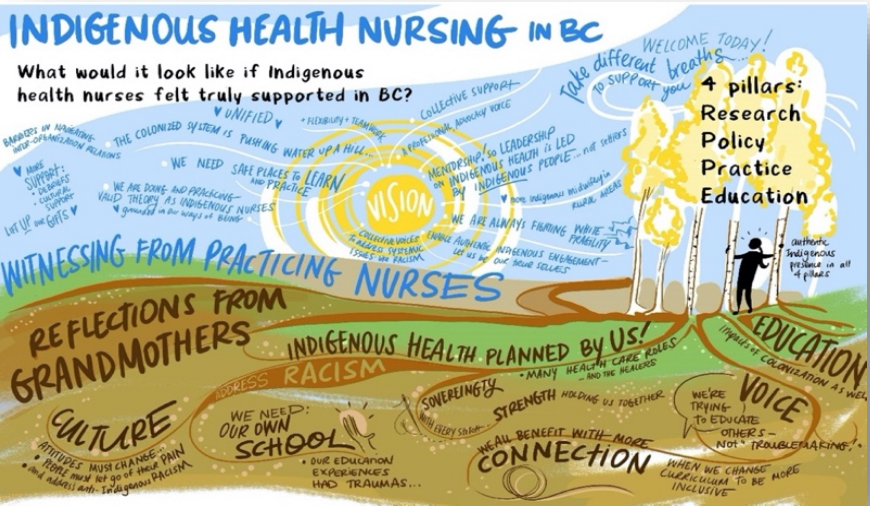
Where Indigenous communities lead healthy, vibrant lives,
with every breath,
with every prayer,
with every stitch,
With every nurse.
IHNR Project Goals
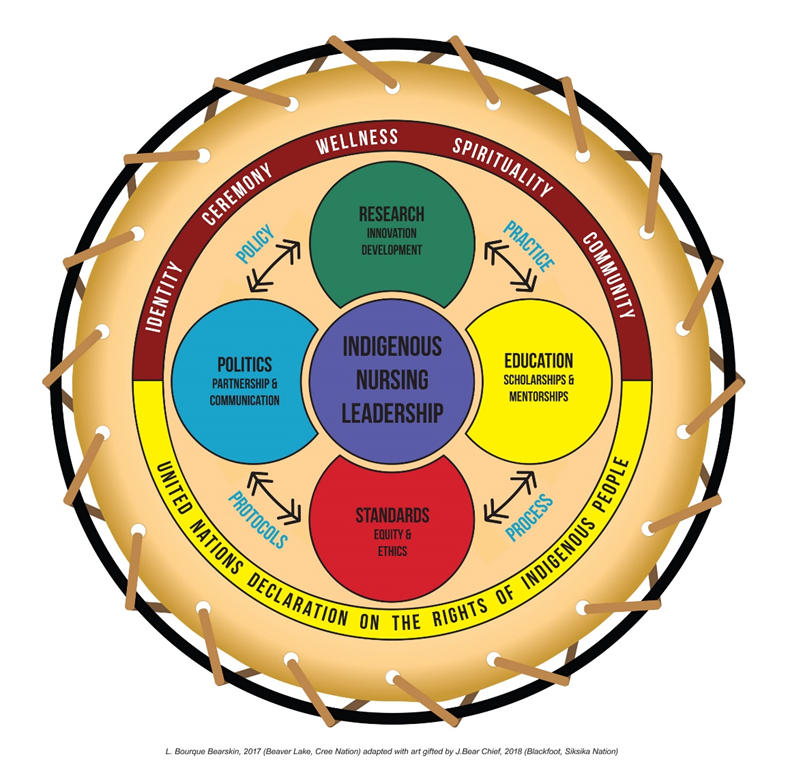
Promote participation and empowers nurses to enhance patients' access to traditional Indigenous wellness practices within culturally safe and secure health care working environments. Advance Indigenous nursing research scholarship and development of Indigenous Health Nursing (IHN) as a professional practice. Complement the role and efforts of Indigenous community-based health services and programs. Collective focus to identify current wise practices, understand barriers to cultural safety and security in Indigenous health care, optimize a Scope of Practice and identify the regulatory standards, education, policy changes required to move towards its implementation.
IHNR Virtual Series
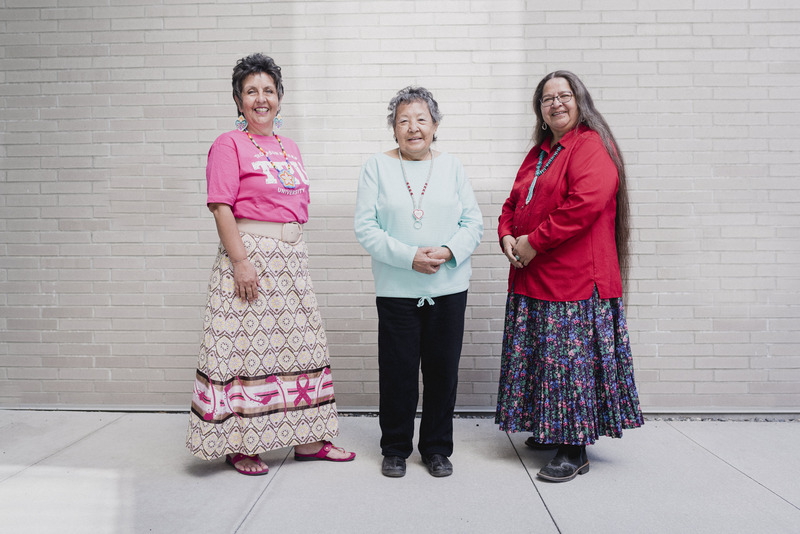
We invite you to join us for our virtual series of webinars featuring health care professionals and leaders advancing Indigenous health and wellness.
Please join our series of speakers, and if you have missed any, all presentations are recorded and available for viewing on the keynotes tab.
Kukwstsétsemc, Hiy Hiy, Maarsii, Thank-you.

